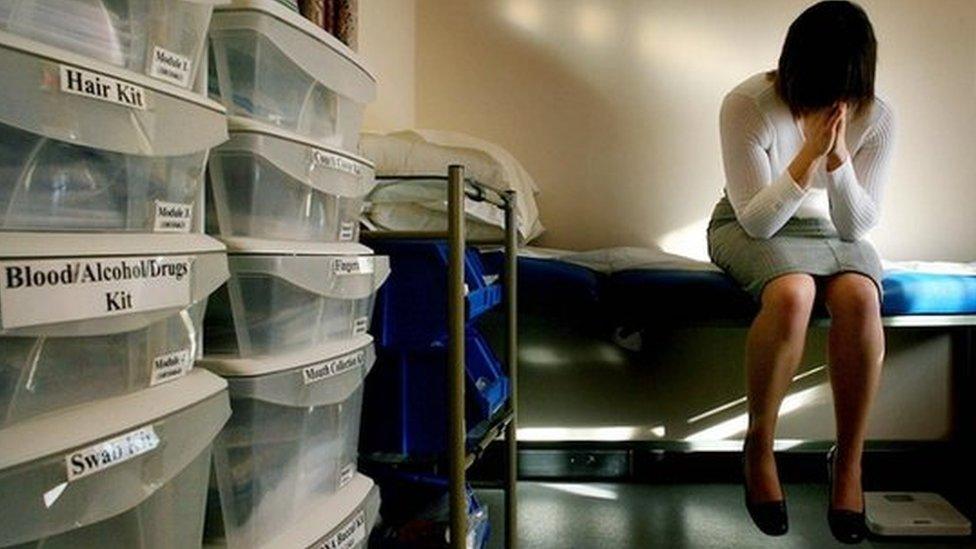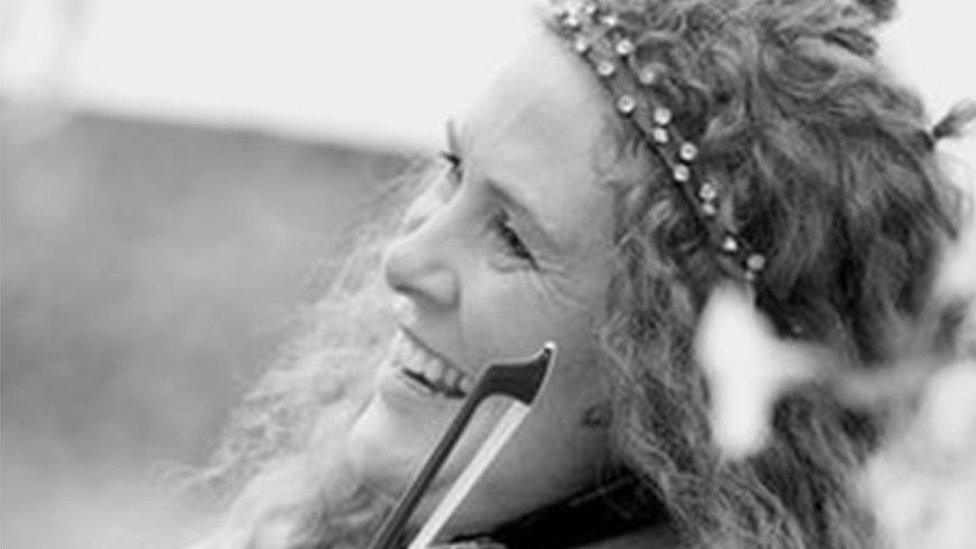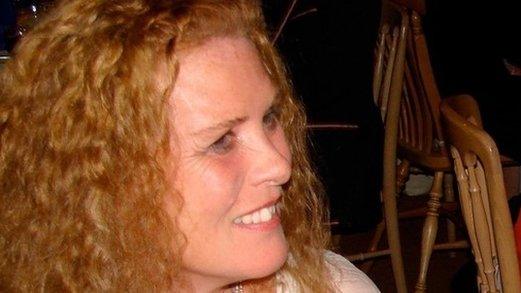Frances Andrade suicide prompts CPS rape victim support pilot
- Published

High-profile rape cases like that involving a violinist who took her own life after giving evidence against her abuser have prompted major changes in the way victims are treated in court.
The Director of Public Prosecutions (DPP) has announced three pilot areas, external where prosecuting barristers will use new guidance to help witnesses and victims during a trial.
It comes after Frances Andrade died in 2013 during the trial of her former teacher from Chetham's School of Music in Manchester.
Cross-examination 'an assault'
DPP Alison Saunders has also acted in the light of other cases, including one where a defence barrister's opening question to a rape victim was: "So tell me, I am very unsure how to address you, is it victim or mistress?"
The victim, known as Woman A, described her subsequent cross-examination as "an assault" and the ordeal as "terrifying".
The Crown Prosecution Service (CPS) and the Ministry of Justice have been urged to strengthen victims' support during a trial.
Following a CPS victim survey, external, the new pilot areas will see prosecutors:
Meet the witness
Explain the process
Outline the defence case
Keep witnesses updated throughout
Ahead of their implementation, staff from St Mary's Sexual Assault Centre in Manchester are shadowing barristers during trials to gain a greater understanding of the process.

Case study: The victim's story
Woman A described how even getting to the courtroom was an ordeal.
" I had to go down steps and on the third step, my knees they gave way, so they had to hold me, taking me down the stairs."
Her questioning went on for several hours over two days.
"My legs were shaking, my knees were shaking, my hands were shaking, I tried to drink the water and the water fell out of the glass because I was shaking so much.
"I'd only written, I'd never spoken about what had happened to me graphically, it was extremely traumatic.
"You are asked to pinpoint fingers, penises, vaginas and you have to say all those words… it's very, very hard, very hard to do."

An inquest into Mrs Andrade's death was told she "spiralled into despair after giving evidence" at the trial of Michael Brewer, who was later jailed for six years for indecently assaulting her.
Mrs Andrade's husband Levine found his wife, known as Fran, dead at their home.
He said: "It brought back horrible memories from her past.
"Apart from the trial bringing it all back up, she felt the defence barrister seemed to be attacking her personally."
The CPS said it had tried to help Mrs Andrade through the case and the judge said the barrister who cross-examined her could not be criticised.
During the inquest into her death, coroner Richard Travers called for the legal system to do more to help vulnerable people when they give evidence in court.
Mark Fenhalls QC, chairman of the Criminal Bar Association, said that under the code of conduct, barristers were "obliged to promote fearlessly and by all proper and lawful means the client's best interests."

Violinist Frances Andrade was 14 when abuse at Chetham's School of Music began in 1978
If a trial judge considers an advocate has "gone too far" he or she can and should intervene, he added.
There are measures already in place to help reduce stress for victims during a trial.
Testifying behind a screen or using a video link helps protect them from facing their alleged attacker.
And, since 2007, video recordings of statements, external made to police by alleged rape victims can be used as their main evidence in court.
Gail Morgan, an adviser with Manchester's St Mary's for 14 years, has shadowed barrister Gary Woodhall in the city.
They both found the experience invaluable.
'Manage cross-examination'
She said: "Gary went to see the victim before the trial... and he made sure the victim - who was giving evidence from behind a screen - could still see him during her cross-examination by the defence."
Mr Woodhall said examining a witness's evidence and challenging what they said was "a natural and necessary" part of the trial process.
"It is how you manage it that is important," he explained.
"How it is done within the rules in a way that causes as little impact, little damage on those who are having to come to court to give evidence."
Prosecutions for sexual offences in England and Wales are at their highest level in a decade and the length of sentences is also on the rise, up more than three months compared with those for September 2013, according to Ministry of Justice figures.
The conviction rate for rape dropped slightly between 2013 and 2014 after five years of steady improvement.
Victims' minister Mike Penning said: "This government is absolutely committed to putting the needs of victims at the heart of the criminal justice system.
"We have given victims more rights under the Victims' Code, external, and will reinforce this by putting key elements in law."
The Victim Support charity supported the announcement and said it was right that victims were given more information about the nature of the defence.
The charity is working with the CPS to develop a training video, which will be used to help prosecutors communicate and interact more effectively with victims.
Katie Russell from Rape Crisis England and Wales said the move was a "step in the right direction" but no single measure would "solve the long-term, chronic problem of unacceptably low levels of justice for sexual violence survivors."
She called for "centralised sustainable funding" for specialist independent rape crisis services.
- Published27 July 2014

- Published25 July 2014

- Published7 July 2014
